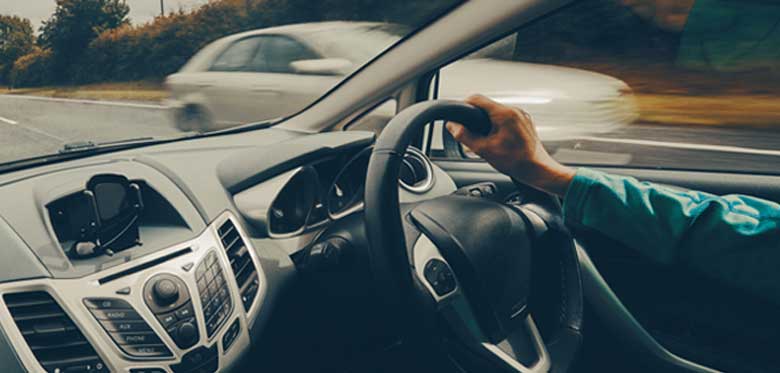As we emerge from the coronavirus lockdown and the courts once again begin to deal with motoring offences, it brings into question the validity of exceptional hardship arguments when being considered in motoring offences. Paul Loughlin, Senior Associate and motoring offence expert, discusses how the rise in home working as a result of the coronavirus pandemic brings these exceptional hardship arguments into question.
The impact of Covid-19 has seen businesses accelerate their flexible working policies so that getting to the office is not as integral as it once was. Video calls are replacing face to face meetings and the world is finding out that there are many benefits to working and dealing with business remotely.
Court ‘lockdown’
Many court hearings that were prepared for court prior to the start of lockdown but did not go ahead due to magistrates’ court being restricted to dealing with more serious cases in the lockdown period, are now being revisited in preparation for the resumption of hearings of less severity.
Motoring cases, for as life changing as their impact can be on the person accused, are seen by the court as less severe. Where a motorist accumulates 12 or more points within a three-year period, they will be liable for disqualification for a period of six months in accordance with the totting up provisions unless the motorist can satisfy the Court that they would suffer exceptional hardship as a result. Exceptional hardship arguments are commonplace in the magistrates’ courts.
There is no fixed definition of what factual background might meet the threshold of ‘exceptional’ and whether a motorist will suffer exceptional hardship falls entirely on the facts of the individual case. Many arguments centre on the loss of a person’s job where they rely on their driving licence to facilitate that job.
For some, the impact of lockdown means that their businesses have adapted, and their roles have become more agile to allow for remote ways to carry out their jobs.
For those people the impact of the loss of their driving licence might change from an exceptional hardship to an inconvenience. For others the impact of the lockdown period has concentrated the need to get back on the road. Many industries obviously cannot circumvent the need for physical presence in different locations and the ability to drive remains vital to that.
Establishing the ‘Scottish Case’
Since 1997 the courts of England and Wales have been guided by a Scottish case called Brennan v McKay. That case is often used here by prosecutors and applied by courts as a persuasive decision taken from a different jurisdiction but one that adopts the same principles applied in our courts when considering exceptional hardship.
That case concluded that it was “necessary to demonstrate not only that the accused would lose his employment but also that there were other circumstances associated with loss of employment which might involve reflected hardship of a serious kind on the accused’s business, his family or his long term prospects”.
Whilst this approach has long been adopted by our courts, the sentencing council has only recently considered formally adopting this approach within a set of sentencing guidelines and consideration.
Sentencing proposals were put out for consultation between 22 January and 15 April this year. The response is yet to be published but the proposals include:
- Reinforcing the idea that an inconvenience is insufficient. There must be a ‘hardship’ and that hardship must be ‘exceptional’ and supported by evidence;
- Proper consideration of a discretionary ban for the individual offence. This would avoid the offender being subjected to the minimum ban under the totting up provisions (6 months);
- Arguments must be supported by evidence that ‘alternatives’ of contingencies are not viable;
- Loss of employment is not necessarily sufficient on its own to amount to exceptional hardship. The court must consider the circumstances of the offender and the consequences of the loss of employment of the offender and/or others.
Emerging arguments
In a world emerging out of a Covid-19 lockdown, it is now more important than ever to fully investigate and prepare for any exceptional hardship argument. The world has changed in relation to working remotely and our reliance on the use of a car is evolving. For some, it is less essential and changing to an inconvenience to be without. For others, the need to drive has never been more concentrated and the ramifications of losing a licence are further reaching than ever before.


